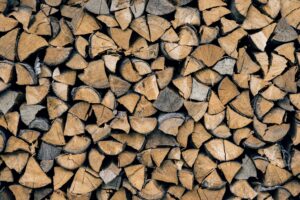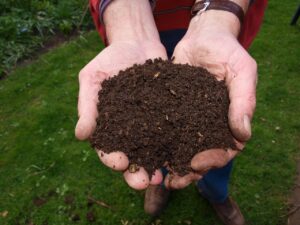Composting is a fantastic way to reduce waste and create nutrient-rich soil for our gardens, but it can sometimes be challenging to get it just right. In this article, we uncover the common problems that many people face when it comes to composting and provide practical solutions to help you achieve success. Whether you’re struggling with odors, pests, or finding the right balance of ingredients, we’ve got you covered. So, let’s dig in and uncover the secrets to trouble-free composting!

Common Problems with Composting
Composting is a wonderful way to reduce waste and create nutrient-rich soil for your garden. However, like any process, it’s not without its challenges. In this article, we will explore the most common problems that can arise during composting and provide practical solutions to help you overcome them. So, let’s dig in!
Odor
One of the most unpleasant issues that can occur during composting is the development of a foul odor. This can happen when the compost pile becomes too wet or lacks proper aeration. The presence of anaerobic bacteria, which thrive in oxygen-deprived environments, can also contribute to the unpleasant smell.
To tackle this problem, it’s crucial to maintain a well-balanced compost pile. Ensure that you have a good mix of green (nitrogen-rich) and brown (carbon-rich) materials. If your compost smells, it may be too wet, so consider adding dry materials like leaves or straw to absorb excess moisture. Turning the compost regularly will provide the necessary airflow, preventing the growth of anaerobic bacteria and reducing odor.
Pests
Another common issue faced by composters is the intrusion of pests such as rats, mice, or flies. These unwelcome visitors are generally attracted to food scraps or other organic matter in the compost pile.
To keep pests at bay, it’s essential to manage your compost properly. Avoid adding meat, dairy, or oily food scraps, as they are more likely to attract pests. Instead, focus on adding a balanced mix of fruit and vegetable scraps, coffee grounds, tea leaves, and yard waste. Additionally, regularly turning the compost can help disrupt pest habitats and discourage their presence. If pests continue to be a problem, consider covering your compost pile with a tight-fitting lid or using a compost bin with secure closures.
Slow Decomposition
Are you frustrated with the slow progress of your compost pile? Don’t worry; you’re not alone. Composting can sometimes stall, and the decomposition process may take longer than expected. This can happen due to several factors, including inadequate carbon to nitrogen ratio, lack of moisture, or insufficient aeration.
To accelerate the decomposition process, ensure a balanced carbon to nitrogen ratio. Green materials like fresh grass clippings or vegetable scraps provide nitrogen, while brown materials like dried leaves or straw supply carbon. Aim for a ratio of approximately 1 part nitrogen to 3 parts carbon. Adding moisture regularly, turning the compost to promote airflow, and shredding larger materials into smaller pieces can also help speed up decomposition.
Unbalanced Carbon to Nitrogen Ratio
Maintaining a balanced carbon to nitrogen ratio is crucial for successful composting. If the ratio is too high in nitrogen (also known as the “green” materials), the compost pile may become slimy and smelly. Conversely, too much carbon (the “brown” materials) can slow down the decomposition process.
To solve this problem, pay attention to the materials you’re adding to your compost pile. Aim for a healthy mix of nitrogen-rich (green) and carbon-rich (brown) ingredients. If your compost pile smells bad or looks excessively wet, it may indicate an excess of nitrogen-rich materials. Add more carbon-rich materials to restore the balance and improve the composting process.
Weed Seeds
It’s disheartening to discover that the beautiful compost you’ve been nurturing is infested with weeds. Unfortunately, weed seeds can survive the composting process and find their way into your garden beds when you apply the finished compost.
To prevent weed seeds from sprouting in your compost, it’s essential to heat your pile to a high enough temperature. Maintain a temperature between 135°F and 160°F (57°C and 71°C) for at least three days to kill weed seeds and pathogens. Turning the compost regularly will help distribute the heat evenly. Additionally, avoid adding weed-infested plant material to your compost pile, as this can introduce more weed seeds.
Lack of Moisture
Moisture is a critical factor for successful composting. If your compost pile is too dry, it can slow down the decomposition process, whereas excessive moisture can lead to odor and pest problems.
To maintain the ideal moisture level, your compost pile should feel moist, like a wrung-out sponge. If it’s too dry, water it lightly with a hose or sprinkle it with a watering can. On the other hand, if your compost is too wet, add more dry, carbon-rich materials like straw or shredded leaves to absorb the excess moisture. Regularly monitoring and adjusting the moisture content will help keep your compost thriving.
Lack of Aeration
Just like any living organism, the microorganisms responsible for breaking down your compost pile need oxygen to thrive. Insufficient airflow within the compost can lead to anaerobic conditions, resulting in foul odors, slow decomposition, and a lack of beneficial microorganisms.
Fortunately, solving this problem is relatively easy. Regularly turning and mixing your compost pile will introduce oxygen and improve aeration. Consider using a garden fork or a compost aerator tool to ensure that the entire pile receives adequate airflow. Aim to turn your compost at least once a week, or more frequently if you notice any signs of anaerobic conditions.
Too much or too little heat
Temperature plays a vital role in composting. While some heat is necessary for the breakdown of organic matter, excessive heat or the lack thereof can become problematic. Extremely high temperatures can kill beneficial microorganisms, while low temperatures can impede decomposition.
To control the temperature of your compost pile, monitor it regularly with a compost thermometer. If temperatures become too high, adjust the pile by turning it and adding more bulky, carbon-rich materials. If temperatures drop too low, ensure that you have a well-balanced mix of nitrogen and carbon materials, and consider insulating your compost pile with straw or a compost blanket.
Inadequate Space
Composting requires a certain amount of space to allow for proper airflow and efficient decomposition. If your compost pile is too small or confined, it can impede airflow, leading to slow decomposition and unpleasant odors.
To create adequate space for composting, ensure that your pile is at least 3 feet wide, 3 feet tall, and as long as necessary to accommodate your needs. If space is limited, consider using a compost bin or tumbler, which can be more compact and provide better aeration. A larger area will allow for easier turning and mixing, resulting in faster decomposition and better compost quality.
Nutrient Imbalance
Maintaining the right nutrient balance in your compost is essential for producing high-quality soil amendment. An imbalance in nutrients can result in compost that is deficient in essential elements or harmful to your plants.
To tackle nutrient imbalances, periodically test your compost for nutrient levels. You can use a commercial soil test kit or send a sample to a local agricultural extension office for analysis. Based on the results, you may need to adjust the compost by incorporating materials richer in specific nutrients. For example, adding bone meal or crushed eggshells can increase calcium levels, while incorporating coffee grounds can boost nitrogen content.

How to Solve Them
Proper Balancing of Ingredients
To solve the problems associated with odor, slow decomposition, and nutrient imbalance, it’s crucial to maintain a proper balance of ingredients in your compost pile. Aim for a roughly equal mix of green (nitrogen-rich) and brown (carbon-rich) materials. Keep a chart or list of materials you add to your compost, ensuring there’s a diverse range of organic matter. This will provide the necessary nutrients and microbial activity required for efficient decomposition.
Turning and Mixing the Compost
Regularly turning and mixing your compost pile helps solve several common problems, such as odor, slow decomposition, lack of aeration, and pest control. By periodically turning the pile, you introduce oxygen, distribute heat, and encourage the breakdown of organic matter. Use a garden fork or compost aerator tool to ensure the entire pile is well mixed. Aim to turn your compost at least once a week, or more frequently if desired results aren’t achieved.
Adding Moisture
Maintaining the right moisture level is key to successful composting. To solve the problem of inadequate moisture, water your compost pile lightly with a hose or sprinkle it with a watering can. Take care not to overwater, as excessive moisture can lead to odor and pest problems. Regularly monitor the moisture content and adjust as necessary by adding dry, carbon-rich materials in case of excessive moisture or watering if it’s too dry.
Covering the Compost Pile
Covering your compost pile is an excellent way to retain moisture, regulate temperature, and prevent pests from accessing the organic matter. Use a tarp, compost cover, or even a layer of straw to protect the pile from excessive rain or drying winds. A cover will also help maintain the optimal moisture level, ensuring an environment conducive to efficient decomposition.
Using Compost Activators
Compost activators are beneficial additives that can speed up the decomposition process and enhance the quality of your compost. They introduce beneficial microorganisms, enzymes, and nutrients that accelerate the breakdown of organic matter. Activators can be in the form of commercially available compost starter kits or natural ingredients like fresh grass clippings, well-aged manure, or garden soil. Follow the manufacturer’s instructions or add activators as per your compost pile size and specific requirements.
Shredding Materials
Shredding larger organic materials, such as branches or garden waste, can significantly reduce decomposition time and improve the overall quality of your compost. Smaller pieces provide more surface area for microorganisms to work on, speeding up the breakdown process. Use a chipper or shredder, or manually chop materials into smaller pieces before adding them to your compost pile. Shredding also aids in preventing weed seeds from surviving the composting process.
Managing Pests
To address pest problems in your compost pile, focus on prevention and proper management. Avoid adding meat, dairy, or oily food scraps that can attract pests. Additionally, ensure a balanced carbon to nitrogen ratio and proper aeration to discourage pest habitats. If pests persist, consider using a covered composting system, such as a compost bin or tumbler, to prevent easy access. Regularly monitor your compost pile for signs of pests and take action accordingly, such as removing infested material or covering the pile with a tight-fitting lid.
Controlling Temperature
To maintain optimal temperatures in your compost pile and solve issues related to slow decomposition or weed seeds, monitor the temperature regularly with a compost thermometer. Adjust the pile by turning it and adding additional carbon-rich materials if temperatures become too high. Conversely, ensure a well-balanced mix of nitrogen and carbon if temperatures drop too low. Insulating the compost pile with straw or a compost blanket during colder months can also help retain heat.
Creating Adequate Space
Solve problems associated with slow decomposition and lack of aeration by creating adequate space for your composting operation. Ensure that your compost pile or bin is wide, tall, and long enough to allow for proper airflow and efficient decomposition. If space is limited, consider using a compost bin or tumbler designed for smaller areas. More space will provide easier access for turning, better mixing, and faster composting results.
Testing and Adjusting Nutrient Levels
Address nutrient imbalances in your compost by periodically testing the nutrient levels. Use a commercial soil test kit or consult with your local agricultural extension office for analysis. Based on the results, adjust your compost by incorporating materials that are richer in specific nutrients. This will help ensure your compost provides the necessary nutrients for healthy plant growth once added to your garden beds.
By following these solutions to common composting problems, you’ll be well on your way to producing high-quality compost and enjoying the benefits in your garden. Remember, composting is a journey of trial and error, so don’t be discouraged if you encounter challenges along the way. With a little patience, experimentation, and the right techniques, you’ll be a composting pro in no time! Happy composting!




